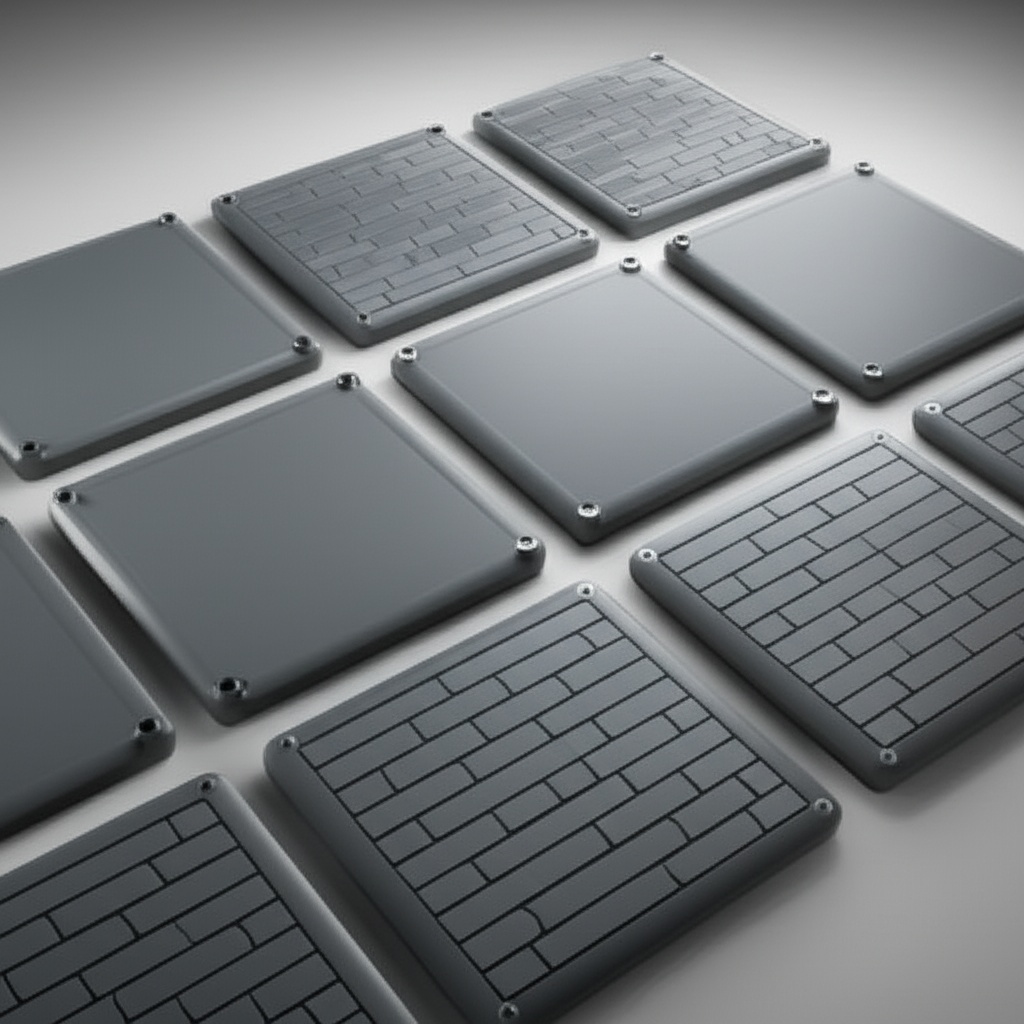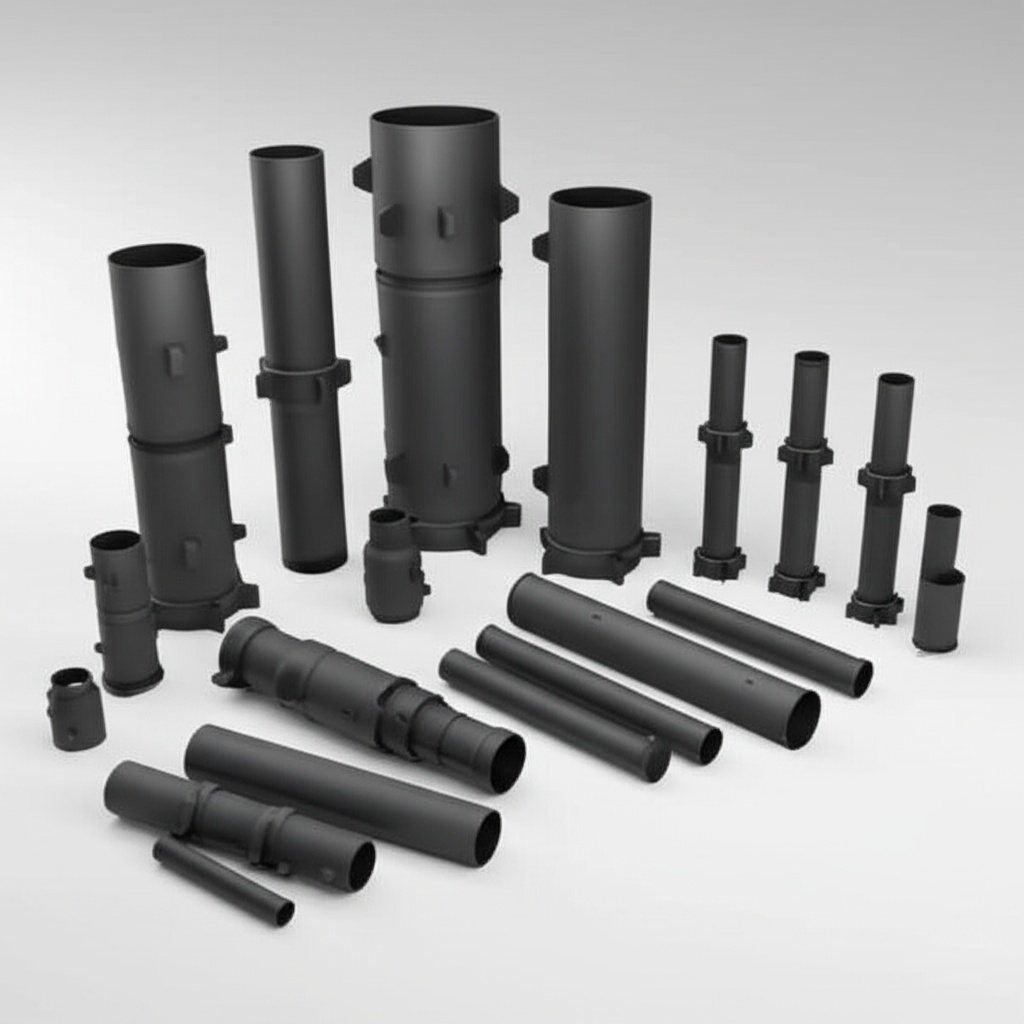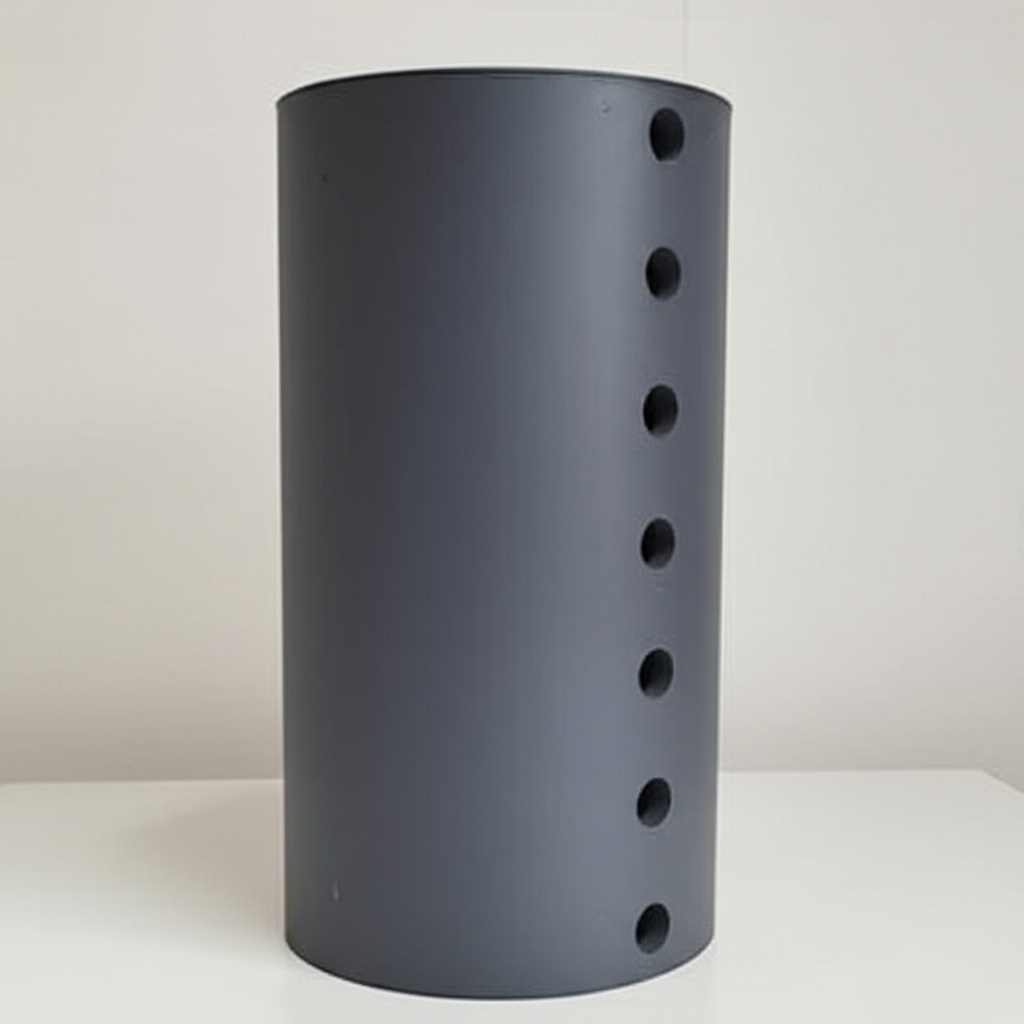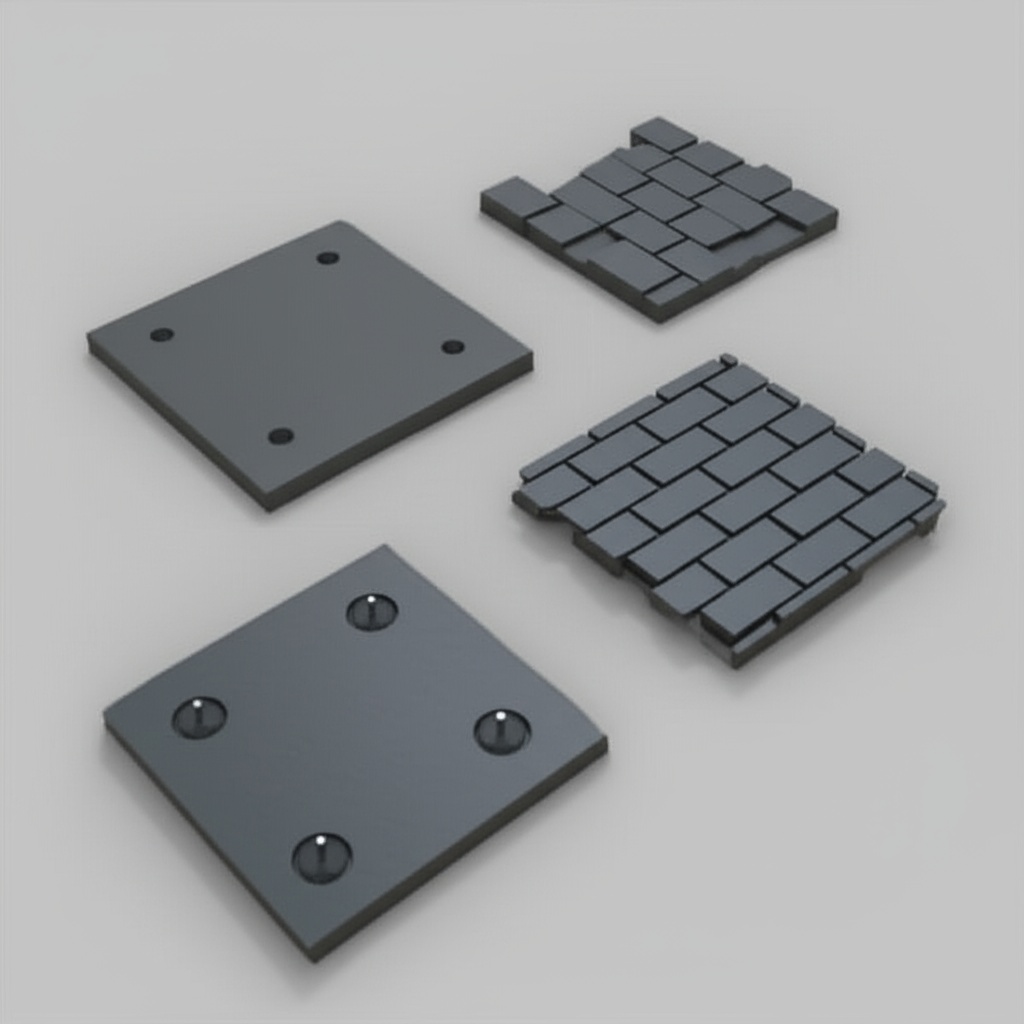Top SiC Manufacturers and Suppliers in India

Share
Top SiC Manufacturers and Suppliers in India
Silicon carbide (SiC) has emerged as a cornerstone material in a myriad of high-performance industrial applications, thanks to its exceptional thermal, mechanical, and electrical properties. As industries push the boundaries of extreme environments and demand higher efficiency, the need for custom silicon carbide products becomes paramount. This blog post delves into the landscape of SiC manufacturing, focusing on key players and critical considerations for engineers, procurement managers, and technical buyers seeking reliable SiC solutions in India.
The Indispensable Role of Custom Silicon Carbide Products
Custom silicon carbide products are not just off-the-shelf components; they are precisely engineered solutions tailored to meet specific industrial demands. From intricate semiconductor components to robust parts for high-temperature processing and aerospace applications, SiC offers unmatched performance where traditional materials fail. Its unique combination of properties, including excellent thermal conductivity, superior hardness, chemical inertness, and high-temperature strength, makes it an ideal choice for challenging environments.
Key Applications of SiC Across Diverse Industries
The versatility of silicon carbide allows it to be employed across a broad spectrum of industries, driving innovation and efficiency. Here’s a glimpse into its widespread applications:
- Semiconductor Manufacturing: SiC is crucial for fabricating power devices, high-frequency electronics, and wafer processing equipment due to its high breakdown field and thermal conductivity.
- Automotive Industry: Used in electric vehicle (EV) inverters, on-board chargers, and power modules for enhanced efficiency and reduced size and weight.
- Aerospace & Defense: Components for jet engines, missile systems, and thermal protection systems benefit from SiC’s lightweight nature and high-temperature resistance.
- Power Electronics: Essential for high-voltage and high-frequency applications like power converters, inverters, and motor drives.
- Renewable Energy: Improves the efficiency of solar inverters and wind turbine power electronics.
- Metallurgy: SiC refractories, crucibles, and furnace components withstand extreme temperatures and corrosive environments.
- Chemical Processing: Used in pumps, valves, and heat exchangers due to its chemical inertness and corrosion resistance.
- LED Manufacturing: Substrates for high-brightness LEDs.
- Industrial Machinery: Wear parts, bearings, and seals for demanding industrial equipment.
- Telecommunications: High-frequency devices and amplifiers.
- Oil and Gas: Components exposed to abrasive and corrosive fluids.
- Medical Devices: Precision instruments and implants requiring high wear resistance and biocompatibility.
- Rail Transportation: Power electronics for traction systems.
- Nuclear Energy: Structural components and fuel cladding due to its radiation resistance.
Why Choose Custom Silicon Carbide? Advantages for Industrial Applications
The decision to opt for custom silicon carbide solutions is driven by a host of compelling advantages:
- Exceptional Thermal Resistance: SiC retains its strength and structural integrity at temperatures exceeding 1,000°C, making it ideal for high-temperature furnaces, heat exchangers, and aerospace components.
- Superior Wear Resistance: Its extreme hardness makes SiC highly resistant to abrasion and erosion, extending the lifespan of critical components in pumps, seals, and bearings.
- Chemical Inertness: SiC exhibits remarkable resistance to most acids, alkalis, and corrosive gases, crucial for chemical processing equipment and harsh industrial environments.
- High Thermal Conductivity: Efficiently dissipates heat, vital for power electronics and heat sinks, leading to improved performance and longevity.
- High Electrical Breakdown Strength: Enables the development of smaller, more efficient power devices, a significant advantage in power electronics and semiconductor applications.
- Lightweight: Despite its strength, SiC is relatively lightweight, contributing to fuel efficiency in aerospace and automotive applications.
Recommended SiC Grades and Compositions
The performance of silicon carbide can be optimized through various grades and compositions, each suited for specific applications. Understanding these distinctions is crucial for selecting the right material for your custom SiC product:
| SiC Grade/Type | Key Properties | Typical Applications |
|---|---|---|
| Reaction-Bonded SiC (RBSC) | High strength, excellent thermal shock resistance, good wear resistance, lower cost. Contains free silicon. | Kiln furniture, pump components, heat exchangers, mechanical seals. |
| Sintered SiC (SSiC) | Very high strength, excellent hardness, superior chemical resistance, high purity. No free silicon. | Mechanical seals, bearings, nozzles, body armor, semiconductor equipment. |
| Nitride-Bonded SiC (NBSC) | Good strength at high temperatures, improved thermal shock resistance, high creep resistance. | Refractory components, kiln furniture, high-temperature structural parts. |
| Chemical Vapor Deposition SiC (CVD SiC) | Extremely high purity, isotropic properties, excellent surface finish, very dense. | Semiconductor wafer carriers, optics, high-purity components. |
| Recrystallized SiC (ReSiC) | Good thermal shock resistance, porous structure, low thermal expansion. | Kiln furniture, high-temperature support structures. |
Design Considerations for Custom SiC Products
Designing custom silicon carbide components requires a thorough understanding of material properties and manufacturing limitations. Key considerations include:
- Geometry Limits: SiC is a hard and brittle material, making complex geometries challenging to machine. Keep designs as simple as possible.
- Wall Thickness: Aim for uniform wall thickness to minimize thermal stress during processing and operation. Avoid sharp corners and abrupt changes in thickness.
- Stress Points: Identify potential stress concentration areas and incorporate radii to distribute stress evenly.
- Tolerances: While SiC can achieve high precision, overly tight tolerances can significantly increase manufacturing costs and lead times.
- Material Selection: Choose the appropriate SiC grade based on the application’s specific requirements (temperature, wear, chemical exposure).
Tolerance, Surface Finish & Dimensional Accuracy
Achieving precise tolerances and optimal surface finishes is critical for the performance of SiC components. Machining SiC after sintering is challenging due to its hardness, so net-shape or near-net-shape manufacturing is often preferred, followed by precision grinding and lapping. Achievable tolerances can vary depending on the complexity of the part and the chosen manufacturing process. Surface finishes can range from rough as-fired surfaces to highly polished, near-mirror finishes for applications requiring low friction or high purity. Dimensional accuracy is paramount for proper fit and function in assembled systems.
Post-Processing Needs for Enhanced Performance
While SiC offers inherent superior properties, post-processing steps can further enhance its performance and durability:
- Precision Grinding & Lapping: Essential for achieving tight tolerances and smooth surface finishes, especially for sealing surfaces and precision mechanical components.
- Polishing: Creates ultra-smooth surfaces, critical for optical applications, semiconductor components, and reducing friction.
- Sealing: For porous SiC grades, sealing can improve density and prevent fluid ingress.
- Coating: Applying specialized coatings can enhance specific properties like corrosion resistance, erosion resistance, or electrical conductivity.
- Joining: Developing robust joining techniques (e.g., brazing, diffusion bonding) for assembling complex SiC structures.
Common Challenges and How to Overcome Them in SiC Manufacturing
Working with silicon carbide presents certain challenges that advanced manufacturers are adept at overcoming:
- Brittleness: SiC is inherently brittle, requiring careful design to avoid stress concentrations and impact.
- Machining Complexity: Its extreme hardness makes conventional machining difficult and costly. Advanced techniques like diamond grinding, laser machining, and ultrasonic machining are employed.
- Thermal Shock: While SiC has good thermal shock resistance, rapid and extreme temperature changes can still pose a risk for certain grades and designs.
- High Sintering Temperatures: Achieving full density requires very high sintering temperatures, demanding specialized equipment and controlled atmospheres.
- Cost: The raw materials and manufacturing processes for SiC can be more expensive than conventional ceramics or metals. However, the extended lifespan and superior performance often justify the higher initial investment.
How to Choose the Right Custom SiC Supplier
Selecting the right supplier for custom silicon carbide products is a critical decision that impacts the quality, cost, and delivery of your components. Consider the following factors:
- Technical Capabilities: Evaluate their expertise in SiC materials science, design, and manufacturing processes. Do they have the necessary equipment for precision machining and testing?
- Material Options: Ensure they offer a wide range of SiC grades to meet your specific application requirements.
- Quality Control & Certifications: Look for certifications like ISO 9001 and robust quality control procedures to ensure consistent product quality.
- Experience & Track Record: A supplier with a proven track record in your industry or similar applications instills confidence.
- Customization Support: Do they offer design assistance, prototyping, and engineering support for complex custom SiC parts?
- Lead Time & Capacity: Assess their ability to meet your production volume and delivery schedules.
When it comes to custom silicon carbide parts and equipment, expertise matters. Here is the hub of China’s silicon carbide customizable parts factories. The region has been home to over 40 silicon carbide production enterprises of various sizes, collectively accounting for more than 80% of the nation’s total silicon carbide output. We, Sicarb Tech, have been introducing and implementing silicon carbide production technology since 2015, assisting the local enterprises in achieving large-scale production and technological advancements in product processes. We have been a witness to the emergence and ongoing development of the local silicon carbide industry.
More reliable quality and supply assurance within China: Sicarb Tech possess a domestic top-tier professional team specializing in customized production of silicon carbide products. Under our support, 440+ local enterprises have benefited from our technologies. We possess a wide array of technologies, such as material, process, design, measurement & evaluation technologies, along with the integrated process from materials to products. This enables us to meet diverse customization needs. We can offer you higher-quality, cost-competitive customized silicon carbide components in China. You can explore our successful case studies here.
We are also committed to assisting you in establishing a specialized factory: If you need to build a professional silicon carbide products manufacturing plant in your country, Sicarb Tech can provide you with the technology transfer for professional silicon carbide production, along with a full range of services (turnkey project) including factory design, procurement of specialized equipment, installation and commissioning, and trial production. This enables you to own a professional silicon carbide products manufacturing plant while ensuring a more effective investment, reliable technology transformation, and guaranteed input-output ratio. Learn more about our technology transfer services.
For custom silicon carbide needs, contact us today to discuss your project requirements.
Cost Drivers and Lead Time Considerations for Custom SiC
Understanding the factors influencing the cost and lead time of custom silicon carbide products is essential for effective project planning:
- Material Grade: High-purity or specialized SiC grades (e.g., SSiC, CVD SiC) are generally more expensive than common grades like RBSC.
- Part Complexity: Intricate geometries, tight tolerances, and fine surface finishes require more advanced machining and processing, increasing costs and lead times.
- Volume: Economies of scale apply; higher production volumes typically lead to lower unit costs.
- Tooling Costs: For new designs, initial tooling costs can be significant, especially for complex shapes.
- Post-Processing: Grinding, lapping, polishing, and specialized coatings add to the overall cost and time.
- Testing & Inspection: Rigorous quality control and specialized testing can contribute to the final price.
- Supplier’s Location and Expertise: Geographic location, labor costs, and the supplier’s technical expertise can influence pricing and lead times.
Frequently Asked Questions (FAQ) about Custom Silicon Carbide
Here are some common questions we encounter regarding custom silicon carbide products:
Q1: What are the primary advantages of SiC over traditional ceramics or metals in high-temperature applications?
A1: SiC offers superior performance at high temperatures due to its excellent thermal stability, high strength, and resistance to creep. It also exhibits better thermal conductivity and chemical inertness compared to many metals and traditional ceramics, making it ideal for extreme environments where other materials would degrade or fail.
Q2: Is SiC suitable for corrosive environments?
A2: Yes, silicon carbide demonstrates exceptional resistance to most acids, alkalis, and corrosive gases, even at elevated temperatures. This makes it highly suitable for chemical processing, oil and gas, and other applications involving aggressive chemical agents.
Q3: Can custom SiC components be manufactured to very tight tolerances?
A3: Absolutely. While SiC is a hard material, advanced machining techniques like diamond grinding, lapping, and polishing allow for the production of custom SiC components with extremely tight dimensional tolerances and superior surface finishes, meeting the demanding requirements of precision applications like semiconductor equipment and mechanical seals.
Q4: What is the typical lead time for custom silicon carbide parts?
A4: Lead times for custom SiC parts vary significantly based on part complexity, material grade, order volume, and the supplier’s current production schedule. Simple designs might have shorter lead times (e.g., 4-6 weeks), while highly complex or large-volume orders could take several months. It’s crucial to discuss your specific requirements with the supplier early in the design phase.
Conclusion: The Future of High-Performance Engineering with Custom SiC
Custom silicon carbide products are not merely components; they are strategic investments in performance, longevity, and efficiency across demanding industrial environments. For engineers, procurement managers, and technical buyers in critical sectors like semiconductors, aerospace, power electronics, and industrial manufacturing, understanding the nuances of SiC materials and the capabilities of expert suppliers is paramount. By choosing the right SiC grade, optimizing designs, and partnering with experienced silicon carbide manufacturers in India and globally, companies can unlock new levels of performance and reliability, pushing the boundaries of what’s possible in high-tech industries.

About the Author: Sicarb Tech
We provide clear and reliable insights into silicon carbide materials, component manufacturing, application technologies, and global market trends. Our content reflects industry expertise, practical experience, and a commitment to helping readers understand the evolving SiC landscape.




